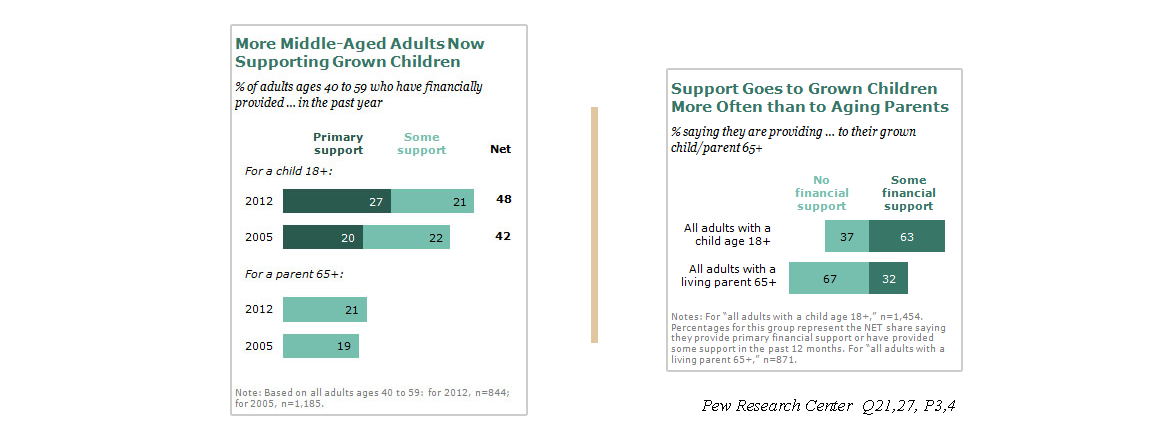Barbra Streisand sings “People who need people are the luckiest people in the world.” But what about the people who are needed? Being one of those is not always easy. Ask someone in the “sandwich generation.” These are people who care for elderly parents while supporting their children. If you find yourself in this generation, you are not alone.
According to a Pew research study, “nearly half (47%) of adults in their 40s and 50s have a parent age 65 or older and are either raising a young child or financially supporting a grown child (age 18 or older). And about one-in-seven middle-aged adults (15%) are providing financial support to both an aging parent and a child.”

The study shows that the financial burdens associated with caring for multiple generations of family members are mounting, and the increased pressure is coming primarily from grown children rather than aging parents.
In order to care for both the young and the old you might find yourself putting your own retirement plans in jeopardy, not to mention exhausting yourself and compromising your own health. There is no simple answer to this dilemma but with the help and understanding of your friends, your religious community and your extended family, you can muddle through by:
- Keeping others informed. If they are aware of your situation, they might be willing to bear some of the burden by helping out.
- Delegate. Assign part of a task or responsibility to someone else in your family.
- Join a support group . Sometimes simply talking about it can help.
One person caught in this sandwich generation wrote; “Rushing around with little sleep, you are not your best as you try to give your best trying to care for everyone's needs when everything is a priority…life seems so impossible that you don’t think you can take time for yourself or even take time to go to church. Yet, you also know that church and community help sustain you.”
Not every instance of being in the sandwich generation is this demanding, but over the long haul, it takes a toll. The situation can also be challenging for the person receiving care. Additionally, this person stated: “You are both in a state of struggle, just different types. You can't pretend it isn't a burden, because they know it is. But it can also be an opportunity to bond deeply in love, to show that this human inter-dependency is part of life's journey. This is love, and it is all okay in the end.”
So, maybe it is not just people who need people who are the luckiest, but also the people who are needed, though it may not seem so at the time.

